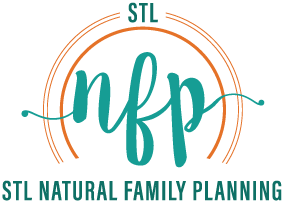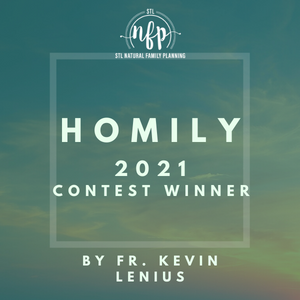By Fr. Kevin Lenius
Homily Contest Winner 2021
When I was young, maybe five or six years old, I had my first experience of deep, profound love. I was sitting on the couch in my family living room with my sister and my parents. It was Friday night, and after watching a family movie, I was feeling cozy and excited for the weekend just beginning. Dad got up to turn off the TV after finishing the movie, and proclaimed in his excited and goofy way, “It’s dancing time!”
This was not uncommon in my household when I was young. Every once in a while, Dad would turn up the speakers, put on some classic rock, and all of us, Mom, Dad, Sister, and Brother, would all let loose in the living room. Was it silly? Absolutely. And yet those are some of my most cherished memories.
All of us moved to the music in whatever way we felt was right and free… no rules, just fun. But underlying the fun was something more. Underneath the beat and the excitement… There was a sense of belonging, a feeling of family… there was love.
As often happened, my sister and I would get overly excited and want to go off into our rooms and start some sort of a game, bring out some toy or launch into some new idea, and on this particular occasion, we left the dancing room leaving Mom and Dad by themselves.
After playing with my sister for a time, I returned to the living room to see what Mom and Dad were doing – and I stopped in my tracks. I wasn’t afraid, but a feeling of awe and holiness swept over me. The music had been changed. The pace had slowed, and Mom and Dad were slowing dancing together to beautiful music. I was entirely captivated:
Their bodies pulled close together, the way my Dad led her with his hand in hers, the other on the small of her back, the way she moved in concert with his steps… and the gaze that they shared, a look so full of meaning, exclusive love, deep understanding of one another. Both having taken dancing lessons, they moved so gracefully, following the rules… but they were so free, so themselves. For the first time in my small, limited world, I was looking upon and understanding what love was. My Dad has always been there for my mom, they have worked together, loved each other, and so much life has come from that love. My parents were to first to teach me about love – true, total, lifegiving, and free.
Whenever we see love, in whatever form it may come, we see a glimpse of who God is. And God, who is LOVE ITSELF, gave us humanity a most sacred gift so as to love deeply and truly: the gift of marriage. “It is not good for the man to be alone. I will make a suitable partner for him.” “This one, at last, is bone of my bones and flesh of my flesh; this one shall be called ‘woman, ‘for out of ‘her man’ this one has been taken.” The two of them become one flesh. They are no longer two, but one.
How beautiful! But there may be some thinking at this point: “Well, marriage isn’t always so rosy and pretty. Sometimes it’s hard, it’s annoying, it can feel burdensome.” Absolutely. Marriage is never an easy thing, but neither is anything of great value or beauty. The nature of marriage is love, and the nature of love is sacrifice… of placing someone else’s needs and desires above your own. All of us are called to love in a particular way, to sacrifice in a particular way, and many are called to mirror and experience God’s sacrificial love in marriage. We are called to sacrifice.
Marriage is never an easy thing, but neither is anything of great value or beauty. The nature of marriage is love, and the nature of love is sacrifice.
God himself is the author of marriage, as we have seen in that first reading from Genesis. And God created marriage to be a great river of love flowing between a man and a woman and then flowing out from them both to create life springing from their union of love. But just as a river has definite boundaries, two banks on either side, so too does love. Love, if it be true, has boundaries or “rules” which must respect the nature of what love means. If my Mom or my Dad did something totally out of the ordinary in their graceful dance, if my Dad started jumping or my Mom stopped moving her feet, the whole dance would be destroyed. In that same way, we are called to respect love for what it is.
The great expression and celebration of this true, sacrificial, marital love is the complete giving of on another in the marital act, the embrace of a man and woman: a holy, sacred, vulnerable, and veiled act that was designed by God to celebrate the committed love of the spouses, bind them together as one, and allow for new life to enter the world. True sacrificial love is always lifegiving and can never be separated from love.
Yet there are many ways that this marital love can “overspill its banks” or “cease to be a true dance.” Selfishness, arrogance, lack of true communication, and greediness are all factors that can lead to a failing marriage. But prince among these errored ways is the misuse of the marital act for pleasure alone and/or deliberately keeping this holy and sacred celebration from bearing new life.
Now, each married couple has the right to plan a family and discuss when they are being called to have a child. Sometimes financial, emotional, or physical resources are scarce and there is the need to avoid a pregnancy… but the way in which one goes about avoiding is very important. We don’t want to turn a true, sacred, loving act meant to create life into a synthetic, fake and incomplete experience that deliberately and absolutely separates love from life. Love intentionally separated from life is not true love. “What God has joined together, no human being must separate.”
This, then, is the reason why any form of contraception, any method that intentionally blocks new life in the marital act, is sinful. Ultimately, it is harmful to us. Many contraceptives have a whole list of side effects or are ineffective. But principally, they are harmful to our souls, for when life and love are ruptured, all that tends to remain is pleasure for its own sake… turning a person into an object for use.
But how can we plan a family without contraception? The Catholic Church has long promoted Fertility Awareness Methods, or Natural Family Planning: methods that allow for family planning without violating the nature of life and love in the marital act. They allow for a couple to understand their bodies and when they are fertile, and they can even help a couple achieve new life when they are trying. God created our bodies holy and whole… even in our sexuality. What we do with our bodies matter, both physically and spiritually.
Now many might have heard of these methods before. Do they require sacrifice, periods of abstinence each month? Yes… but if we wish to love we are called to sacrifice. Do they require great communication between both husband and wife? Yes… if we wish to love we must take the time to respect the nature of love and what God has called us to do. Here at our parish, we have tons of resources to learn about these methods, particularly a time tested and health care verified method called the Creighton Model, primarily taught out of the St. Paul VI Institute. I am always available for questions after Mass or in the Church office, and so is a team of couples who are familiar with these methods. Just reach out to us if you would like to learn more.
Finally, no one has the perfect relationship, the perfect marriage, or the perfect priesthood. Each of us daily falls short of true love – but we are always called to strive for it. God is ever merciful and desires to love us and forgive us in the sacrament of confession, and he is constantly strengthening us to love sacrificially when we approach this altar each week. Let us trust that if we strive to love truly and sacrificially, he will bring us to true peace and happiness, even amidst the struggles. Let us trust the dance, and, following the rules it demands, dance and love freely in his great love for us.

